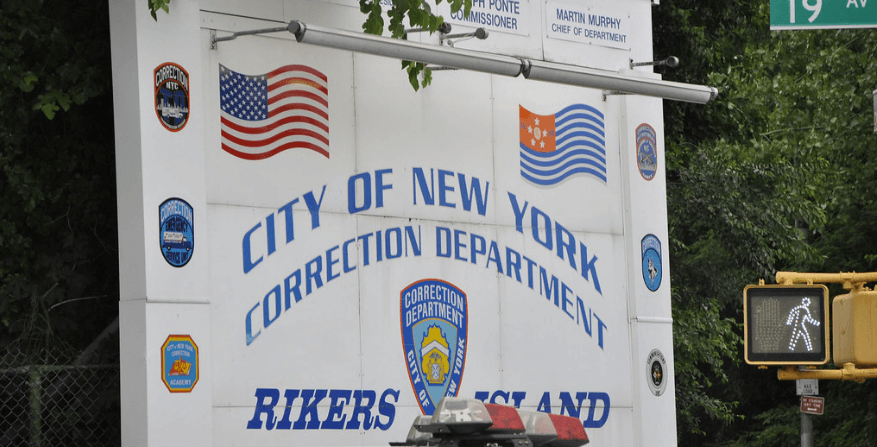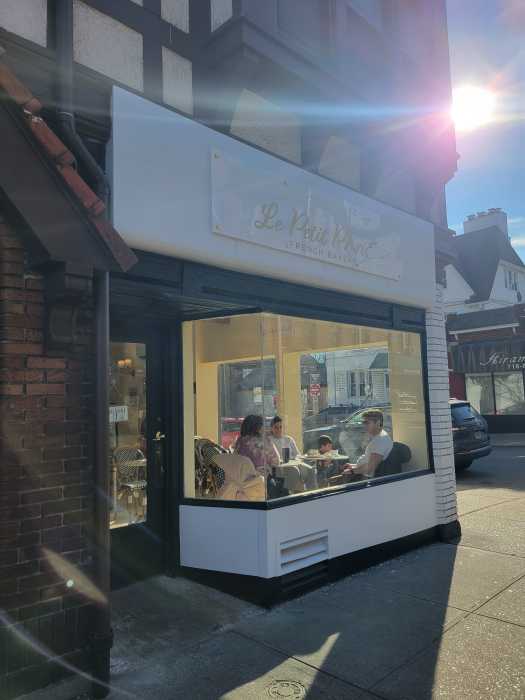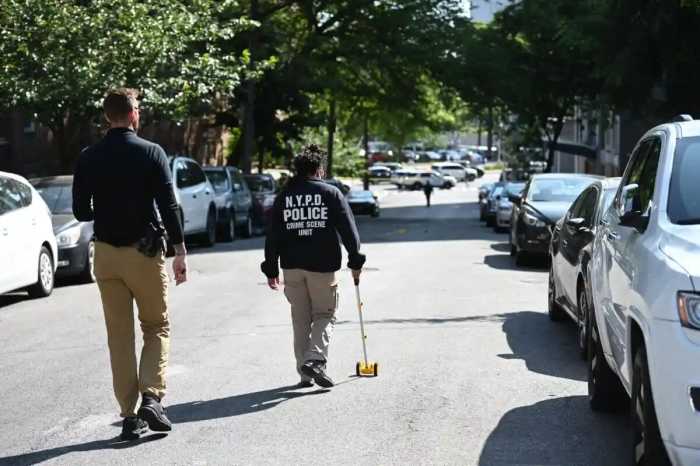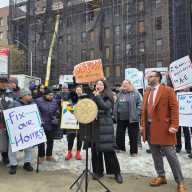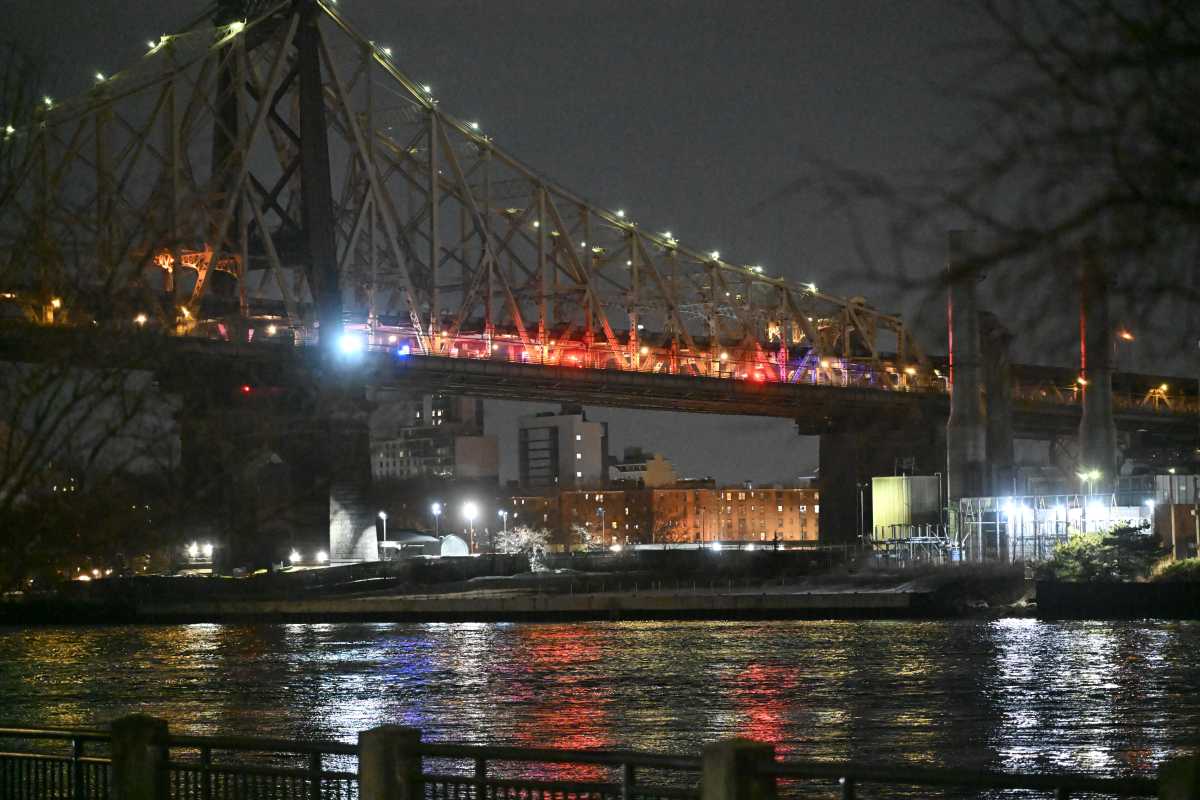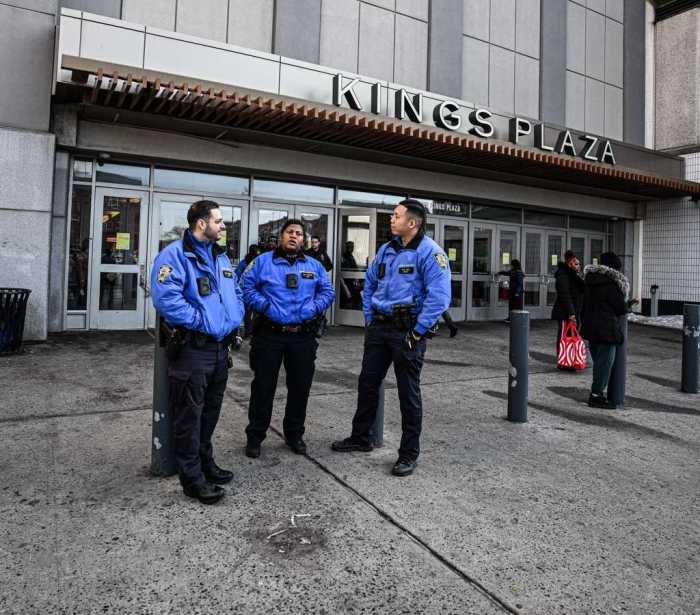Concerned Queens residents and activists spoke their minds at yet another hearing on the Mayor’s office’s proposal to close Rikers Island in exchange for four smaller borough-based jails located adjacent to courthouses.
Borough President Melinda Katz heard viewpoints on the topic on June 13 as prominent activists in the fight for justice reform advocated for the closure of Rikers for the dangerous conditions it promotes with many opposing any new jails.
Stanley Richards, executive vice president of the Fortune Society, was incarcerated himself and spoke at the hearing offering his written testimony.
“When I was younger, I spent about ten years behind bars for the harms I caused, including two years on Rikers Island. When I came home from prison, I dedicated myself to helping people like me succeed on a different path,” Richards said. “I also serve on New York City’s Board of Correction as the Vice-Chair, which sets the minimum standards and provides oversight and accountability to the Department of Correction… I know the hell of Rikers and I know it has to be closed as soon as possible. Every day it stays open is a day our loved ones and neighbors are harmed. The neglect, lack of accountability, and logistical problems caused by Rikers Island’s isolation cannot be solved. The City’s plan is not perfect, but it is our best shot to close Rikers, and the pressure created by the plan is helping drive down levels of incarceration. We cannot lose that momentum.”
As representatives of the Mayor’s Office of Criminal Justice (MOCJ) announced at the hearing, the previously proposed 1.2 million square foot structure has been reduced in capacity from 5,000 detainees down 4,000. The agency attributed this change to bail reform which was recently passed in Albany.
Katz criticized the mayor’s approach to the initiative having issued a request in January to rehash the plan by the MOCJ and the Lippman Commission, which built a set of recommendations for proceeding with edging Rikers out.
The borough president called on Mayor Bill de Blasio to start the land use process from the beginning with more public input as residents argued that there was not enough inclusion on their end.
“Any plan by the City – especially the siting and design of any new jails – must include meaningful community engagement and input. I am deeply disturbed by the lack of opportunity thereof for the proposal to erect a 1.9-million square-foot facility on 82nd Avenue. And that’s from a supporter of closing Rikers. The City needs to start anew,” Katz said. “There’s still time and opportunity to do it the right way: careful planning in collaboration with affected communities – who are treated as partners in, not irrelevant to, reform – while employing smart criminal justice strategies to reduce the jail population.”
De Blasio later said that the plan’s inexorable crawl toward completion, via a ULURP application, would not be slowed toward its 20127.
“From a public safety, a criminal justice, and a moral perspective, this proposal is the right approach. The nine jails on Rikers Island make New York City less safe,” Robert Fiske, U.S. Attorney for the Southern District of New York also said in written testimony presented at Thursday’s hearing. “In many respects, they leave people worse off than when they enter. We can and must do better, starting with efforts to hold fewer people in jail. I am encouraged by the progress that has been made over the past few years in that regard, and expect this progress to continue. For the smaller number of people who will remain incarcerated, properly-designed jails in the boroughs that are closer to courthouses, family members, lawyers and other service providers provide an opportunity to break with the terrible legacy of Rikers Island.”
One of the primary purposes of placing the jails closer to county courthouses is to reduce the time and resources required to transport detainees to and from appearances before a judge, according to Tyler Nims from the Lippman Commission.
Another hurdle posed by the location of jails on Rikers is the difficulties of visitations. Whether from attorneys or family, those in detention have the chips stacked against them.
While many advocates for criminal justice reform are in favor of Rikers closing in favor of borough-based jails, some groups are advocating against any new jails whatsoever. Members of No New Jails NYC promote an approach against incarceration altogether in which violent offenders go through trauma informed programs in order to no longer pose a danger to society.
Katz has not yet released her decision regarding her recommendation toward the jail, with a July 3 deadline, before it makes its way to City Council and the Planning Commission.
Correction note: this article has been updated to clarify Borough President Melinda Katz’ stance on the close Rikers plan which she has supported with added requests from the administration over time.

